Piotr Ilyich Tchaikovsky
Story
Pyotr Ilyich Tchaikovsky (1840 – 1893) was a Russian composer of the Romantic era. Although not a member of the group of nationalistic composers usually known in English-speaking countries as The Five, his music has come to be known and loved for its distinctly Russian character as well as its rich harmonies and stirring melodies. His works, however, were much more western than his Russian contemporaries as he effectively used both nationalistic folk melodies and international elements. Tchaikovsky was born in Kamsko-Votkinsk, Russia, to a Ukrainian mining engineer and his second wife, a woman of French ancestry. His last name derives from chayka (чайка) which means gull. Musically precocious, he began piano lessons at the age of five. He went on to study at the St. Petersburg Conservatory from 1861 to 1865. In 1866, he was appointed professor of theory and harmony at the Moscow Conservatory, established that year. He held the post until approximately 1878. Tchaikovsky married Antonina Milyukova, who had written to him declaring her love, on July 18, 1877. The marriage was hasty, and he quickly found he could not bear his wife. First, the composer made an attempt at suicide two weeks after the wedding, then he fled to Saint Petersburg a nervous wreck, and was separated from his wife after only six weeks. The couple never saw each other again, although they never divorced and Tchaikovsky died a married man. This episode only served to confirm Tchaikovsky’s homosexuality, which he was apparently trying to conceal through the marriage. (Kamien, p. 253)
A far more influential woman in Tchaikovsky’s life was a wealthy widow, Madame Nadezhda von Meck, with whom he corresponded from 1877 to 1890. At her insistence they never met; they did encounter each other on two occasions, purely by chance, but did not converse. As well as financial support of 6000 rubles a year, she expressed her interest in his musical career and admiration for his music. However she abruptly cut off her support for the composer. It is widely believed that she did so because she found out about Tchaikovsky’s sexual preference. It is possible she was planning to marry off one of her daughters to Tchaikovsky, as she also tried unsuccessfully to marry one of them to Claude Debussy, who had lived in Russia for a time as music teacher to her family. It was during this period that Tchaikovsky achieved success throughout Europe and as well as in the United States in 1891. Just nine days after the first performance of his Sixth Symphony, Pathétique, in 1893, in St. Petersburg, Tchaikovsky died. It is generally accepted that his death was by suicide, although the manner (commonly claimed to be from cholera brought about by drinking infected water, although arsenic poisoning is more likely) and circumstances are uncertain. One suggestion is that a group of his former classmates encouraged him to commit suicide to avoid the scandal of an alleged affair with the nephew of a member of the Russian aristocracy. Tchaikovsky was interred in Tikhvin Cemetery at the Alexander Nevsky Monastery in Saint Petersburg. His life, somewhat embroidered, is the subject of Ken Russell’s motion picture The Music Lovers.
Details
- Composer
- Piotr Ilyich Tchaikovsky
- Date of birth
- May 7, 1840
- Nationality
- Russian
- Albums
- 40
- Tracks
- 211
40 albums
-

George Frideric Handel, Richard Wagner and 15 others
A Royal Christmas for the Queen
-
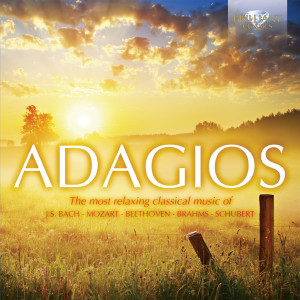
Antonín Dvořák, Maurice Ravel and 12 others
Adagios
-

Edward Elgar, Georges Bizet and 27 others
Beautiful Classical Melodies
-

Piotr Ilyich Tchaikovsky, Dmitri Shostakovich and 16 others
Berceuse
-

Piotr Ilyich Tchaikovsky, Johann Sebastian Bach and 5 others
Best Classical Relaxing Music
-

Piotr Ilyich Tchaikovsky, Michael Praetorius and 2 others
Duarte: Complete Works for Guitar Quartet
-

George Frideric Handel, Camille Saint-Saëns and 10 others
Earl Wild: Complete Piano Music
-

George Frideric Handel, Camille Saint-Saëns and 5 others
Earl Wild: The Complete Transcriptions and Original Piano Works, Vol. 3
-

Piotr Ilyich Tchaikovsky, Alexander Glazunov and Alexander Borodin
Elegy: Music by Glazunov, Tchaikovsky, Borodin
-
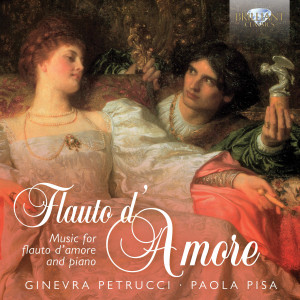
Edward Elgar, Camille Saint-Saëns and 20 others
Flauto d'Amore
-

Piotr Ilyich Tchaikovsky, Claude Debussy and 2 others
Für Elise. Piano Music for Children
-

Maurice Ravel, Piotr Ilyich Tchaikovsky and 11 others
Klára Würtz: Celebration Vol. 5
-

Antonín Dvořák, Camille Saint-Saëns and 9 others
Le Secret: Music for Cello & Harp
-

Piotr Ilyich Tchaikovsky, Wolfgang Amadeus Mozart and 10 others
Liebestraum: Romantic Piano Melodies
-

Piotr Ilyich Tchaikovsky, Dmitri Shostakovich and 5 others
Liza Ferschtman
-
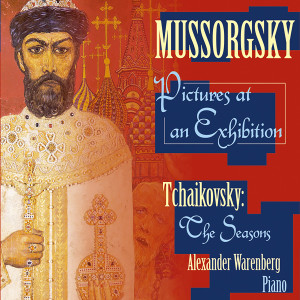
Piotr Ilyich Tchaikovsky, Alexander Scriabin and 4 others
Mussorgsky: Pictures at an Exhibition - Tchaikovsky: The Seasons
-
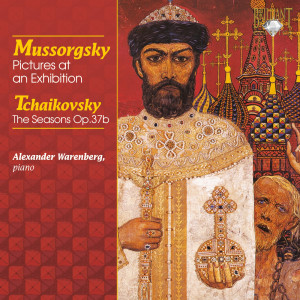
Piotr Ilyich Tchaikovsky and Modest Mussorgsky
Mussorgsky: Pictures at an Exhibition - Tchaikovsky: The Seasons, Op. 37b
-
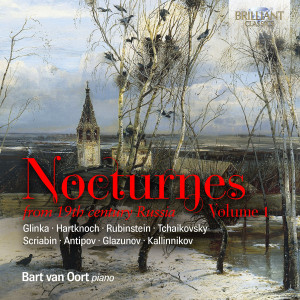
Piotr Ilyich Tchaikovsky, Anton Rubinstein and 6 others
Nocturnes from 19th Century Russia, Vol. 1
-
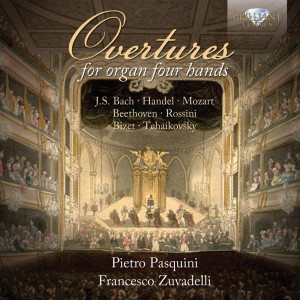
George Frideric Handel, Georges Bizet and 5 others
Overtures for Organ Four Hands
-

Piotr Ilyich Tchaikovsky, Wolfgang Amadeus Mozart and 4 others
Piano Music for Children: Kinderszenen, Children's Corner, Für Elise, Rondo alla turca
-
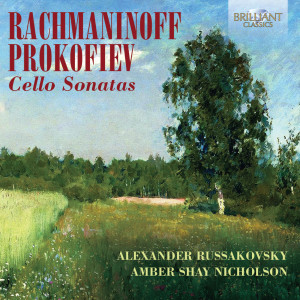
Piotr Ilyich Tchaikovsky, Alexander Glazunov and 3 others
Rachmaninoff & Prokofiev: Cello Sonatas
-
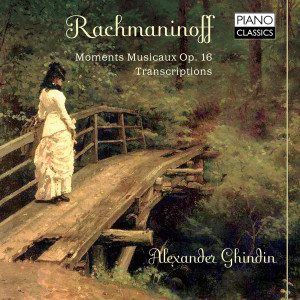
Georges Bizet, Piotr Ilyich Tchaikovsky and 7 others
Rachmaninoff: Moments musicaux, Op. 16, Transcriptions
-

Samuel Barber, Piotr Ilyich Tchaikovsky and 43 others
Romantic Piano Concertos, Vol. 1
-
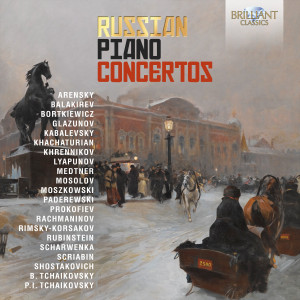
Aram Ilyich Khachaturian, Piotr Ilyich Tchaikovsky and 18 others
Russian Piano Concertos
-
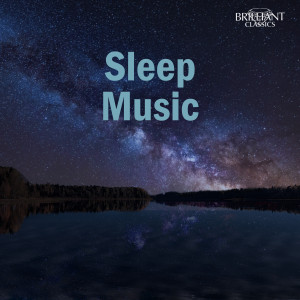
Antonín Dvořák, Maurice Ravel and 16 others
Sleep Music
-

George Frideric Handel, Richard Wagner and 15 others
Sunday Morning Classics
-
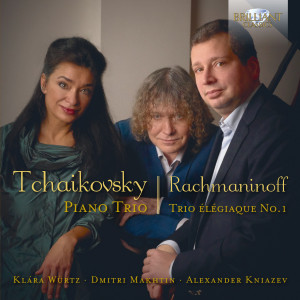
Piotr Ilyich Tchaikovsky and Sergei Rachmaninoff
Tchaikovsky, Rachmaninoff: Piano Trio in A Minor, Trio Élégiaque
-

Piotr Ilyich Tchaikovsky
Tchaikovsky: Album for the Young, Op. 39, 12 Pieces for Piano of Medium Difficulty, Op. 40
-
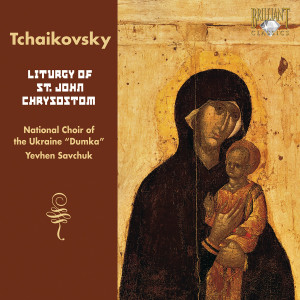
Piotr Ilyich Tchaikovsky
Tchaikovsky: Liturgy of St. John Chrysostom
-

Piotr Ilyich Tchaikovsky
Tchaikovsky: Rococo Variations
-

Piotr Ilyich Tchaikovsky
Tchaikovsky: Serenade for Strings, Op. 48
-

Piotr Ilyich Tchaikovsky
Tchaikovsky: The Seasons
-

Camille Saint-Saëns, Gabriel Fauré and 37 others
The Romantic Age, 500 Years of Classical Music
-

Antonín Dvořák, Camille Saint-Saëns and 13 others
The Romantic Cello
-

Camille Saint-Saëns, Gabriel Fauré and 7 others
The Romantic Cello
-

Antonín Dvořák, Camille Saint-Saëns and 14 others
Top 50 Most Popular Classical Cello
-

Maurice Ravel, Piotr Ilyich Tchaikovsky and 12 others
Top 50 Most Popular Classical Piano
-

Richard Wagner, Edward Elgar and 36 others
Top 50 Most Popular Classical Violin
-

Piotr Ilyich Tchaikovsky, Wolfgang Amadeus Mozart and 8 others
Top 50 Most Popular Classics for Kids
-

Piotr Ilyich Tchaikovsky, Modest Mussorgsky and Igor Khudoley
Virtuoso Transcriptions
